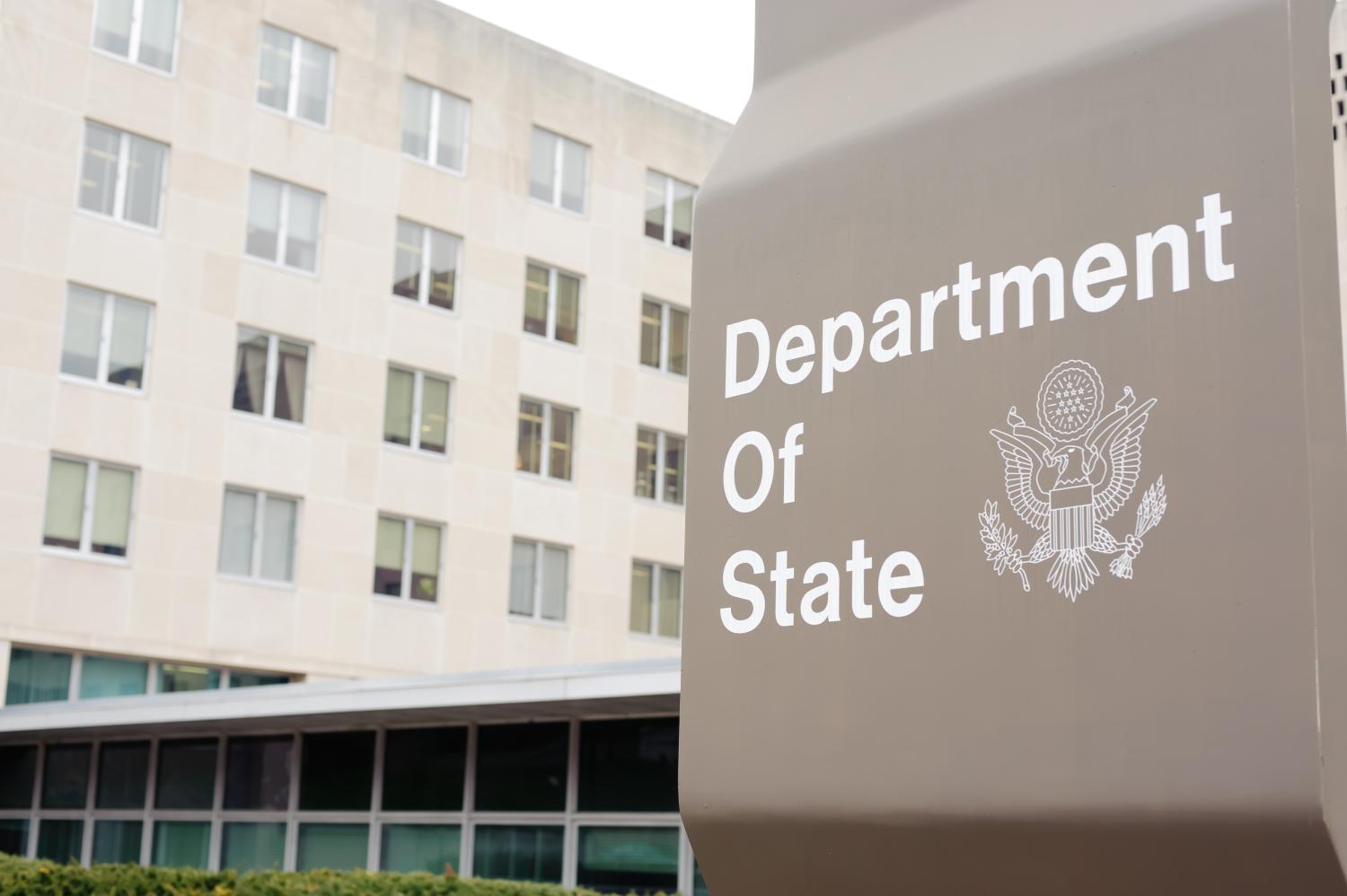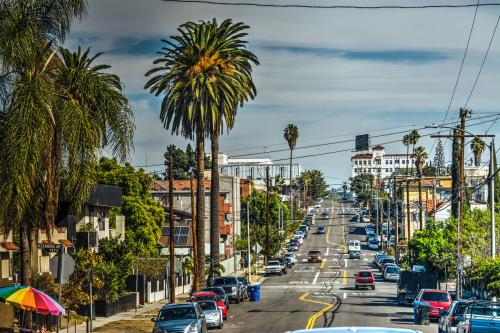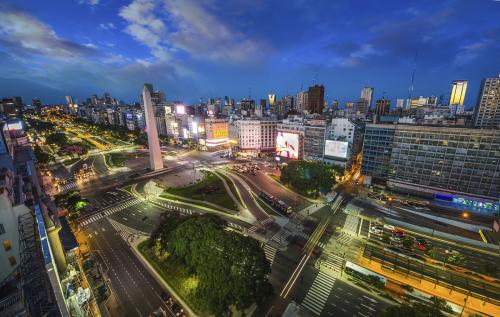Meeting with U.S. mayors shortly after the U.S. election, President-elect Joe Biden pledged to work with them in a new partnership between local and federal governments as part of his “Build Back Better” agenda. The COVID-19 crisis has illustrated the leadership role that cities and states play in addressing the transnational challenges driving the new administration’s domestic agenda. Local governments are on the frontlines of the pandemic, climate change, trade, and migration, and the intersection of these issues with racial inequities.
To address these challenges, the Biden-Harris transition is signaling a return to proactive American engagement in global cooperation and multilateralism. This will require rebuilding the credibility of U.S. leadership in global affairs, as it faces skepticism from the fallout of the Trump administration’s “America First” foreign policy, while rebuilding a depleted diplomatic corps at the Department of State.
Creating an office of subnational diplomacy within the State Department will enable the U.S. government to leverage the global leadership and experience of mayors and governors while advancing its domestic agenda. This office’s main objective should be to build the capacity and expertise of cities and states to engage with counterparts across the world in ways that benefit their residents.
Through a fellowship that places State Department diplomats with local governments, the new office could play a key role in rebuilding the diplomatic corps for the 21st century, providing expanded opportunities for early- to mid-stage diplomats to sharpen their expertise and experience and benefit from the pragmatic, problem-solving approach to international relations practiced at the subnational level. The U.S. government would also have the opportunity to leverage this soft power on the global stage, helping it accelerate the return of U.S. global credibility and reestablish U.S. global cooperation on key policy priorities.
Challenge
The incoming Biden administration must immediately address a set of domestic crises that clearly have a global provenance, such as the COVID-19 pandemic and climate change. Other global issues such as migration, trade, and deficits of democratic governance are also tied to key policy priorities, including the urgency to dismantle racial inequities and injustice and renew trust in the institutions of U.S. democracy.
Yet the world has lost confidence in the ability and effectiveness of the U.S. federal government to address global problems. Notwithstanding the new administration’s pledge to reengage in multilateral efforts and reposition the U.S. as a constructive participant in international institutions, with an eye toward eventually recovering its preeminence as a leader of global cooperation, the U.S. has far to go to rebuild its credibility among the community of nations committed to collective action. This intention to renew U.S. global engagement will be complicated by a U.S. diplomatic corps that is depleted, demoralized, and lacking the tools, training, and support to be successful in advancing U.S. interests amid 21st century challenges.
Twenty-first century diplomacy requires better connecting foreign policy to American prosperity and renewal. The leadership of the new National Security Council (NSC) has emphasized the need to “ensure that the needs of working Americans are front and center in our national security policymaking.” And while a group of bipartisan foreign policy experts recently agreed on the necessity of “Making U.S. Foreign Policy Work Better for the Middle Class,” they also recognized that most Americans at the local level will be challenged to verify if and how U.S. foreign policy is better serving their interests. Rebuilding the trust of its own citizens in its competency and leadership is a very real imperative for the U.S. Department of State.
Twenty-first century diplomacy requires better connecting foreign policy to American prosperity and renewal.
While the Trump administration’s “America First” foreign policy has negatively affected the U.S. global reputation, and Secretary of State Pompeo’s tenure has yet to bring back his promised “swagger” to the diplomatic corps, cities and states have stepped into the leadership void. During the initial response to COVID-19, local leaders demonstrated their ability to act decisively and nimbly on the front lines of a major global crisis. They took decisive measures to develop safety protocols, supply medical requirements, and ensure health services, even in the absence of clear guidance and robust support from the federal government.
They were aided by their participation and leadership in global fora. In late March 2020, Mayor Eric Garcetti of Los Angeles virtually convened 45 mayors from around the world to share their experiences as COVID-19 rippled throughout the world. These mayors were part of C40 Cities, a network of 96 of the world’s largest cities focused on fighting the climate emergency. The network, chaired by Los Angeles Mayor Eric Garcetti since the pandemic hit, includes U.S. cities such as Houston, New York, Phoenix, and Philadelphia cooperating with global cities like Durban, Hanoi, London, and Milan. The recovery task force of mayors that subsequently launched under the auspices of C40 Cities has been one of the bright lights of global cooperation amid a dim global response, with its influential set of cities committed to an equitable and sustainable economic recovery.
This is just one example of how U.S. cities and states are demonstrating leadership on the global stage. New York City has been at the forefront of encouraging local leadership in sustainable development, submitting the first-ever local review of progress on the Sustainable Development Goals (SDGs), agreed by all 193 member states at the United Nations in 2015, and has promoted a declaration to sign up other cities and states around the world. The city of Houston hosted a Sherpa meeting of the Urban-20 (U-20) in July, a recently launched forum of global cities seeking to insert an urban perspective into the deliberations of the G-20. The day after the Trump administration announced the withdrawal from the Paris Agreement, more than 450 U.S. cities—including the 10 largest ones—committed to uphold the Agreement goals. Ten U.S. cities are part of the Strong Cities Network countering violent extremism. Local leaders have direct experience in dealing with the tangible implications of global crises as they manifest locally, and have earned a reputation for pragmatism and problem-solving, with the needs of their citizens uppermost in mind. Heads of state, senior diplomats from national governments, and senior officials from multilateral organizations routinely connect with U.S. local leaders through bilateral relations: in 2019 alone, Houston hosted visits from the president of Poland, the prime minister of South Korea, and the prime minister of India.
While adhering to constitutional limits, U.S. cities and states are developing their own foreign policy, catching up with what is already a common function in other countries. Larger cities have increased the sophistication of their skills and professional team. Their prosperity benefits from foreign talent, investments, and innovation through global promotion and economic partnerships. Driven by economic development goals, it is increasingly common for them to seek to develop ties with foreign counterparts. For instance, the state of Maryland signed in December 2020 an agreement with the French region of Hauts-de-France reinforcing historic bilateral ties on a number of issues, including trade, technology, and health. At the same time, staffing and expertise are often limited, and valid concerns surface about their ability to navigate all the security and geopolitical implications that may be related to cross-border activities.
This is especially the case when interacting with politically sensitive countries such as Russia and China. “Competition with China is not just a federal issue” stated former Secretary Pompeo during his address at the National Governors Association in February 2020. The emerging competition between U.S. and China is multilayered, with China’s central government using subnational relations as a tool of influence in the United States. Adapting the United States’ approach to those relations requires understanding the breadth of that competition, including at the subnational level. In October 2019, the State Department started requiring that all of the Chinese foreign missions “notify the Department of State in advance of official meetings with local and municipal officials.”
Limits of historic and existing policies
No formal channel exists to leverage the international engagement of cities and states to benefit U.S. foreign policy. At present, the primary presence of the State Department across the U.S. occurs through six regional offices staffed with diplomats managed by its Office of Foreign Missions (OFM). These are focused on working with foreign consulates to provide reciprocal privileges to their diplomats while advancing the interests of the U.S. These missions span Washington, D.C., Chicago, Houston, Los Angeles, Miami, New York, and San Francisco.
The Department of Commerce also has offices across the U.S. that provide expertise and support to businesses and local governments concerning their overseas trade activities. It provides support to local leaders on trade missions, with Certified Trade Missions (CTMs) led by private and public sector export-oriented groups and hosted by the U.S. Department of Commerce’s overseas Commercial Service offices.
The State Department previously assigned Foreign Service Officers (FSOs) to the continental United States. Created in 1976 from a bill promoted by Senator James B. Pearson (R-KS), the Pearson Fellowship sent a number of experienced foreign service officers “for duty with state and local governments, public schools, community colleges, or other public organizations.” This enabled diplomats to learn from the local realities of U.S. domestic communities while augmenting the ability of local governments to develop their global ties. Over time, however, the fellowship evolved and moved away from this original intent: Today Pearson Fellows are almost exclusively seconded to the United States Congress, to serve in a legislator’s personal office or staff a Congressional committee.
These initiatives do not touch a great deal of the international engagement being practiced by cities and states. To its detriment, the U.S. federal government is underusing a valuable tool that would help it advance its foreign policy interests.
Policymakers have sometimes raised objections to protect the State Department’s “turf” over foreign policymaking. The U.S. Constitution clearly grants responsibility and power for conducting foreign relations to the president and Congress, and local governments are constrained from interfering in its conduct by the national government.1 Yet subnational governments have wide latitude to engage with foreign counterparts and execute agreements, memorandums of understanding, or other mechanisms to formalize or impart an official designation to their ties.
Recent initiatives within the State Department during the Obama administration aimed to establish the importance of cities to U.S. foreign policy. In the administration’s first term, Secretary of State Hillary Clinton named a U.S. special representative for global intergovernmental affairs, a post held between 2010-2013 by Reta Jo Lewis. As envoy, she negotiated agreements with cities in geopolitically important countries such as China, and worked to enhance relationships between state and local officials with the State Department and support interactions with their foreign counterparts. Directly answering to the secretary of state, she oversaw an office that eventually included 12 staff. Upon her departure, the office was folded into the Bureau for Public Affairs but eventually was discontinued.
Secretary of State John Kerry, Clinton’s successor, subsequently named Ian Klaus as senior advisor for global cities within Policy Planning at the State Department. Rather than an operational office, the position advanced thinking on the implications of rapid urbanization and the impact of global cities on key diplomatic and strategic interests and priorities for U.S. foreign policy. Through analysis of trends and network engagement, the adviser assisted bureaus with policy proposals and negotiations sensitive to the emerging importance of cities and local leaders around the world. Thus, while the special representative engaged diplomatically with cities across the globe, much of the adviser’s work focused internally with bureaus and the interagency, facilitating analysis and proposals.
Calls for institutionalizing a stronger relationship at the State Department between the international affairs of local governments and its foreign policy have been building over the past five years, especially given the experiences of the Obama administration and recognition by current and former diplomats of the importance of subnational activity. In 2017, Mayor Eric Garcetti of Los Angeles named Ambassador Nina Hachigian as deputy mayor for international affairs, likely the first time such a position has been given the status of deputy mayor in a U.S. city. Despite this, U.S. local and state governments lag their counterparts in other parts of the world in assigning staff to conduct diplomatic activities on behalf of their constituents, especially given the global economic and cultural importance of some U.S. jurisdictions.
In 2019, Rep. Ted Lieu (D-CA-33) and Rep. Joe Wilson (R-SC-2) introduced legislation, the “City and State Diplomacy Act,” to create an office of subnational diplomacy within the State Department. A year later, Sen. Chris Murphy (D-Conn.) and then-Senator David Perdue (R-GA) introduced a similar bill in the Senate. The legislation would authorize an office headed by an ambassador-at-large who reports to the undersecretary of political affairs, and provide fellowships for foreign service officers to serve in city and state governments across the U.S. The proposal has received significant bipartisan support and found its way into the House’s Defense Authorization Act for 2021, but a single objection caused it to be removed from the Senate’s version.
Models from other countries
Emerging and established policy structures in other countries provide insight into the opportunities and pitfalls of developing a formal channel that links the diplomacy of subnational governments with the U.S. Department of State.
New legislation in Australia seeks to rein in the international activity of local governments, in response to an agreement launched between the Victoria state government and the Chinese government as part of its Belt and Road initiative. The recently established laws give the national government veto power over agreements negotiated by local and state governments, compromising the autonomy of local leaders and reducing their incentives and political influence to engage in and strengthen local diplomacy.
Other countries have prioritized the potential positive outcomes of the global engagement of local leaders for the country’s foreign policy, taking steps to support and leverage it. In France, the Ministry of Foreign Affairs hosts an office, headed by an ambassador (the “Délégation pour l’action extérieure des collectivités territoriales,” DAECT) and staffed with diplomats specialized by region and issue, to support this international activity.
The office, for instance, encourages and supports international development cooperation efforts led by subnational stakeholders. Financial incentives orient cooperation on the SDGs to priority countries for French diplomacy. To cultivate a dialogue between foreign policy and subnational engagement, a commission under the authority of the prime minister (the “Commission nationale de la coopération décentralisée, CNCD) connects representatives from most ministries; representatives of associations of cities and regions; and key public agencies in a twice-yearly meeting with the minister of foreign affairs, to discuss priority themes and coordination of external action at all levels of government.
French local governments have a long history of international activity sanctioned and encouraged by the national government. The external action of subnational governments and their cooperation with foreign counterparts is seen as a key contribution to France’s soft power and influence abroad. By empowering it, France enables subnational action and cross-border agreements with counterparts, as long as local governments respect the boundaries of French treaties and avoid clashing with core foreign policy commitments.
Policy recommendations
The incoming Biden administration should create and seek to institutionalize an office of subnational diplomacy within the State Department. The administration should signal the importance of this office by providing adequate staffing; positioning its leader to be at the level of ambassador or assistant secretary; ensuring that it is placed under the undersecretary of political (P) or economic (E) affairs; and immediately advocating Congress to pass authorizing legislation that ensures its continuation beyond the change in a presidential administration.
1. Set the office’s primary objective as strengthening the ability of U.S. cities and states to conduct international activities and maximize the benefits for their residents.
Cities and states have autonomously been engaging internationally, resulting in a diversity of innovations, partnerships, relationships, and exchanges of knowledge and best practices on issues meaningful to them and their constituents. The initiative should clearly position the office as a support to empower this local action. The office would thus focus its activities on providing staffing, intelligence, expertise, and training to help these local governments build their capacity, boost their global influence, and optimize the benefits they receive from their international engagement.
As suggested by the proposed legislation, a fellowship program that places a substantial number of foreign service officers for tours of duty in U.S. city and state governments should serve as the centerpiece of the new office. To reinforce the importance of such an experience, and put incentives in place to attract elite talent, the administration should seek to make the fellowship a mandatory requirement for earning one of the four ranks associated with the senior foreign service. There is precedent for this, as it was an original characteristic of the Pearson Fellowship.
This would not only provide immediate capacity at the local level; it would also provide the State Department with an immediate expansion of opportunities for maturing diplomats to sharpen their skills and experience. The chance to engage in the type of pragmatic, problem-solving orientation that is emblematic of subnational diplomacy, and the scale of fellowships (the proposed legislation called for 30), would enable this initiative to play an important role in the rebuilding of the diplomatic corps.
We suggest that public engagement with local residents and stakeholders be an intentional part of the fellowship. Diplomats might be required to hold at least one local town hall per quarter during their tour, for example, that enables a public conversation about their work and the benefits/implications for the city or state. Another idea would be to do a series of presentations to students at local schools.
These activities would achieve multiple purposes:
- Provide immediate staffing capacity and expertise in diplomacy that elevate the presence and influence of U.S. cities and states on the global stage.
- Optimize the ability of U.S. cities and states to respond to the local effects of transnational issues.
- Expand the immediate opportunities for challenging hands-on experience for a new class of diplomats who will need to know how to engage with a wide range of stakeholders, helping rebuild and strengthen the capabilities of the U.S. diplomatic corps.
- Build relationships between State Department diplomats and local citizens, enabling a greater understanding of the connection between foreign policy and its implications for local communities.
- Increase the ability of early- to mid-career diplomats to connect U.S. diplomatic efforts and international challenges to domestic issues.
It is important to ensure that the goal is not to bring the global activities of cities and states “in line” with U.S. foreign policy or have them convey the policy priorities of the national government. The office should aim to build the capacity of cities to better leverage their leadership and weight on engaging globally and solving global issues. To maximize that reach, the State Department will help cities refine their skills and competencies to do so.
2. Empower the office to open a channel for mayors and governors to inform and help shape U.S. foreign policy on key priorities.
Cities and states have experience and strategic foresight to provide to the U.S. government on global issues where they form the frontlines of local response. They are sharpening their ability to respond to these issues through their bilateral relations with international counterparts and their participation in global cooperation facilitated through various international networks (some estimates suggest more than 300 city-to-city networks now exist). This office can play a leadership role in helping leverage their expertise and relationships as foreign policy positions are developed so that U.S. positions respond to the needs and implications for local communities.
There are different models to consider. Some priorities might warrant their own time-limited working group or task force, similar to the model of the “State, Local, and Tribal Leaders Task Force On Climate Preparedness and Resilience” that convened governors, mayors, county officials, and Tribal leaders from across the country with federal government officials. Alternatively, it might make sense to form an advisory group that includes mayors, governors, and key intermediaries (the U.S. Conference of Mayors, National League of Cities, National Association of Counties, National Governors Association) that meets regularly with the secretary or deputy secretary of state and other key senior officials.
While ostensibly the focus would be on offering local leaders the opportunity to provide input into policy development, the benefits to the State Department would not be limited to better policy. Because local governments are sovereign-less, local leaders often enjoy a higher degree of flexibility and freedom than national diplomats. They deploy soft power under the umbrella of pragmatism and problem-solving. This enables them to unlock business and technical relationships with foreign counterparts that can be unusual and valuable. Cities, in particular, are developing networks for global cooperation, such as C40 Cities and the U-20, and these may prove useful as the State Department seeks to reimagine U.S. global leadership that drives collective action.
The Office could also lead the introduction of subnational issues into interagency coordination by connecting local government leaders and issues with the National Security Council, the U.S. Agency for International Development, and the Domestic Policy Council, among others. The ambassador and its staff should also strategically build relationships within the State Department and offer value-added expertise and influence that connect policy issues and meetings to the subnational dimension.
3. Harness the State Department’s expertise to help subnational governments navigate the opportunities and risks posed by international engagement.
The office should harness the knowledge, intelligence, and expertise of the State Department to improve the ability of cities and states to manage the geopolitical and security sensitivities that come with global engagement. Other than a few large cities such as Houston, Los Angeles, and New York City that have diplomatic teams, many engage globally with little background and training in international relations. The State Department could help them navigate the implications of certain partnerships before launching foreign missions or hosting foreign delegations. This could also help prevent potential vulnerabilities and security risks stemming from unprepared and uninformed interactions with counterparts from U.S. competitors.
The office should make it a key priority to ensure access to the training and intelligence that enables the State Department’s diplomatic leadership. This means enabling regular intelligence briefings on sensitive and relevant matters. The office might also build a special curriculum for training at the Foreign Service Institute. Hosting an annual gathering of the international affairs and protocol officials from U.S. cities and states would lay the groundwork for relationships and a community of practice that builds trustful relationships with local partners. The office might also build a knowledgebase of sample agreements, tools, and best practices that acts a policy library for subnational diplomacy.
Conclusion
In 2021, the United States is reentering an arena of global cooperation that has changed dramatically since 2016. As the incoming administration prepares to return the U.S. to the Paris agreement and reengage with COP26, for example, it is important to recognize that U.S. cities and states have been global leaders in elevating standards and collective action—while also flexing their muscles to move these agendas locally. Given the urgency of multiple crises with global dimensions and domestic implications, the U.S. cannot afford to avoid using all means available to solve these problems. The Biden administration should leverage emerging bipartisan support and give subnational diplomacy its rightful place at the table of U.S. foreign policy, creating an office of subnational diplomacy and working to institutionalize it through legislation.
-
Footnotes
- The exclusive nature of the federal foreign relations power has been asserted by the Supreme Court in a series of landmark decisions, including U.S. Supreme Court. Holmes v. Jennison, 39 U.S. 14 Pet. 540 540 (1840): “Power over external affairs is not shared by the States; it is vested in the national government exclusively.”







